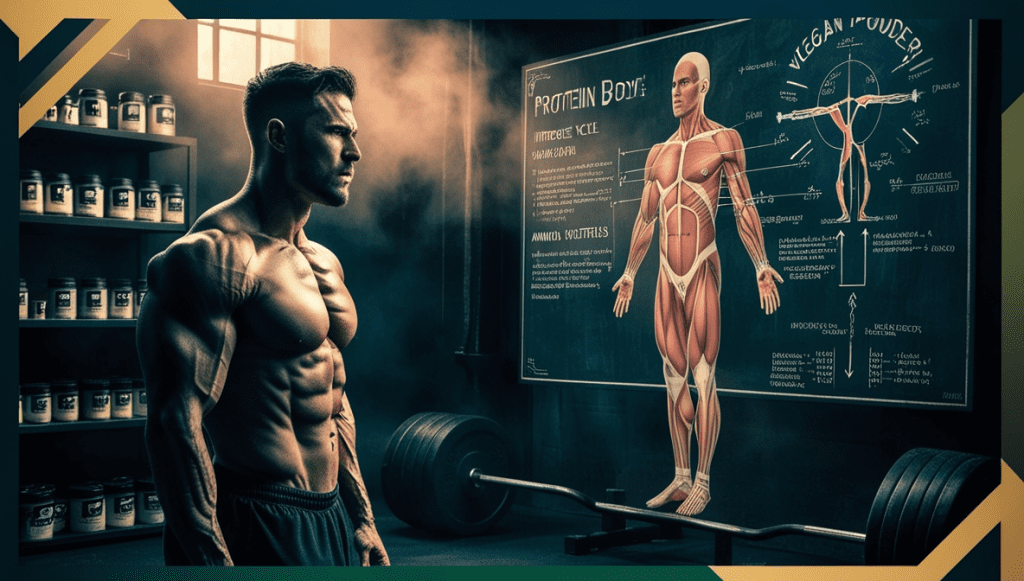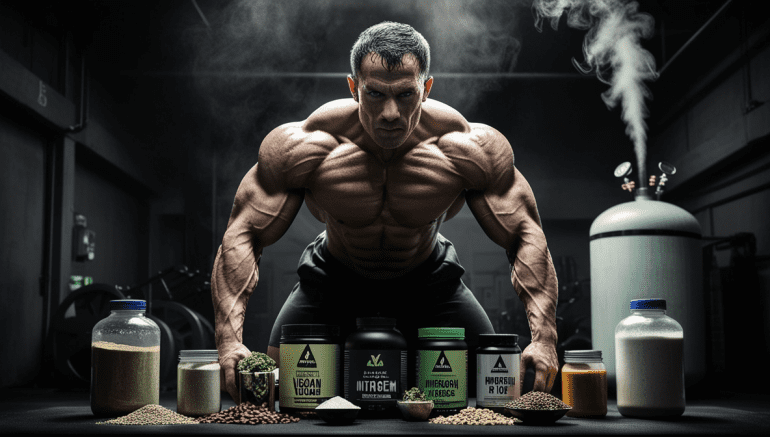Vegan bodybuilders often face unique challenges when it comes to meeting their protein needs, particularly in obtaining sufficient nitrogen for amino acid synthesis. Nitrogen is a crucial element found in amino acids, which are the building blocks of proteins. Understanding how vegan bodybuilders can effectively secure adequate nitrogen is essential for muscle growth and overall health.
The Role of Nitrogen in Protein Synthesis
Nitrogen balance is a key indicator of protein status in the body. It is determined by comparing the amount of nitrogen consumed (through protein) to the amount excreted (mainly through urine). A positive nitrogen balance indicates that the body is retaining more nitrogen than it is losing, which is essential for muscle growth and repair. Conversely, a negative nitrogen balance can lead to muscle breakdown and hinder athletic performance.
Sources of Nitrogen for Vegan Bodybuilders
Plant-Based Protein Sources: Vegan bodybuilders can obtain nitrogen through various plant-based protein sources. Some of the most effective include:
- Legumes: Beans, lentils, and chickpeas are rich in protein and provide essential amino acids.
- Tofu and Tempeh: These soy products are excellent sources of complete protein, containing all essential amino acids.
- Quinoa: A complete protein grain that offers a good amino acid profile along with carbohydrates and fiber.
- Nuts and Seeds: Almonds, chia seeds, hemp seeds, and flaxseeds not only provide protein but also healthy fats.
Protein Supplements: Many vegan bodybuilders turn to plant-based protein powders made from pea protein, brown rice protein, or hemp protein to help meet their daily protein requirements. These supplements can be easily added to smoothies or consumed post-workout to support recovery.
Diverse Diet: Incorporating a variety of plant-based foods ensures that vegan bodybuilders receive a broad spectrum of amino acids. Combining different sources, such as grains with legumes (e.g., rice and beans), can enhance the overall protein quality.

Challenges with Vegan Protein Intake
Despite the availability of plant-based protein sources, vegan bodybuilders may encounter specific challenges:
- Lower Protein Quality: Plant proteins often contain lower levels of certain essential amino acids compared to animal proteins. For instance, they may be deficient in leucine, an amino acid critical for muscle protein synthesis.
- Inadequate Protein Intake: Studies suggest that many vegans may not consume enough protein to maintain a positive nitrogen balance. For example, research indicates that a standard intake of 0.8 g/kg/day may not suffice for strict vegans engaged in regular resistance training.
Strategies for Optimizing Nitrogen Intake
To ensure adequate nitrogen intake and maintain a positive nitrogen balance, vegan bodybuilders can implement several strategies:
- Increase Protein Intake: Aim for higher protein consumption than the general recommended dietary allowance (RDA). Many experts suggest that active individuals may benefit from 1.2 to 2.0 g/kg/day depending on their training intensity and goals.
- Focus on Quality Sources: Prioritize high-quality plant proteins that are rich in essential amino acids. Combining different sources throughout the day can help achieve a complete amino acid profile.
- Monitor Nutritional Intake: Keeping track of daily food intake using apps or food diaries can help ensure that protein and overall nutrient needs are being met.
- Consider Supplementation: If dietary sources fall short, consider using branched-chain amino acid (BCAA) supplements or complete plant-based protein powders to fill nutritional gaps.
Conclusion
Vegan bodybuilders can successfully meet their nitrogen needs for amino acid synthesis through a combination of diverse plant-based foods, high-quality protein sources, and strategic dietary planning. While challenges exist regarding protein quality and intake levels, being mindful of these factors allows vegan athletes to thrive in their fitness journeys while adhering to their dietary principles. As always, consulting with nutritionists or dietitians specializing in plant-based diets can provide tailored guidance for optimal health and performance.

